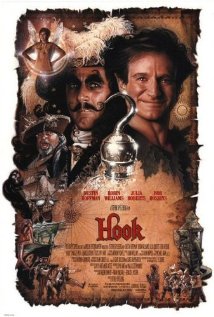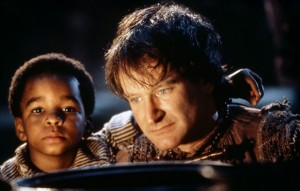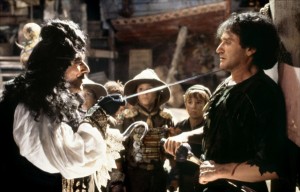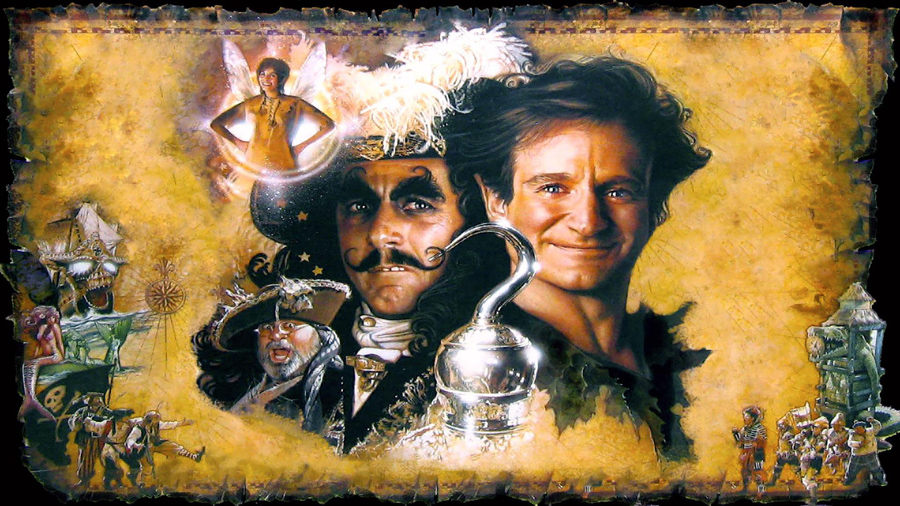by Mark Wingerter (@MarkWingdinger)
Mark Wingerter is a writer, filmmaker, and musician with a passion for story. In his “Re:View” series, he will not only be exploring movies from the past, but helping you understand why they are worth revisiting.
 As many remember Robin Williams after his passing, all of his greatest films are being watched on repeat. He made so many good ones that inspired, provoked thought, and of course made us laugh. Most of his films are cherished, and it is because they often had the power to engage our most basic needs and desires. They were incredible examples of why we love and need film.
As many remember Robin Williams after his passing, all of his greatest films are being watched on repeat. He made so many good ones that inspired, provoked thought, and of course made us laugh. Most of his films are cherished, and it is because they often had the power to engage our most basic needs and desires. They were incredible examples of why we love and need film.
I have always been fascinated with our love of movies. We watch them for so many different reasons- to escape, to examine life in a new way, to be a part of the excitement of the beating pulse of culture. There’s never an invalid reason to watch a movie. And even bad movies can speak to us and allow us to experience art as only a moving picture can.
But I believe that at the heart of our enjoyment of movies (and by extension, television) is a need to believe in something. We all have beliefs and ideologies that we wear like goggles when we view culture. And part of the power of movies is that they directly address our beliefs in different ways, pulling the strap back on our goggles and letting them slap back onto our faces. They cause us to examine our beliefs, or challenge them, and sometimes dare us to abandon them for a moment. Robin Williams’ films often did this while allowing us to have some fun with them as well.
I first saw Hook when it was in theaters over 20 years ago. Ever since, the film has held a special place in my heart that only grows as I get older. It is funny, imaginative, strange and adventurous. And what it does so well is explore the mythos of the Peter Pan story: What does it look like to grow up after we declare that we will not? What does a world built out of imagination look like? What is it like to discover your happy thoughts? It’s a fun ride to take, like going behind the scenes of the original story. But ultimately this is a movie about belief and it’s crucial role in our lives.
There’s a scene in the middle of the lost boys camp as Peter Banning (get it?) is weary from the grueling training regimen he has gone through in attempt to whip himself back into Peter Pan shape. He is brought to the dinner table for what looks to be an impressive feast. He aches at the smell of the food, yearning to lift off the tops from the steaming pots and indulge to his heart’s content. The lost boys say “grace,” literally, and the meal begins. But Peter sees nothing. There’s no food in front of him, yet the lost boys are digging in, stuffing their faces and delighting in the meal. Peter is confused, trying desperately to figure it out.
Peter: “What’s the deal? Where’s the real food?”
Tinkerbell: “If you can’t imagine yourself being Peter Pan, you won’t be Peter Pan, so eat up.”
Peter: “Eat what? There’s nothing here. Ghandi ate more than this!”
 That last line has nothing to do with my point, it’s just one of the many great lines in this movie, likely ad libbed by the genius of Robin Williams. But there we have it. There is no Peter Pan without imagination. There is no hero without belief.
That last line has nothing to do with my point, it’s just one of the many great lines in this movie, likely ad libbed by the genius of Robin Williams. But there we have it. There is no Peter Pan without imagination. There is no hero without belief.
That imaginary feast is a lot like our entertainment landscape. The movies are the smorgasbord of life. You’ve got your sweets, your meats, even your nutrient-essential leafy greens. But they are only going to fill you if you let them. Through our imagination we can go on the many different journeys brought to us by film, and in those journeys, as in life, we are enriched.
Robin Williams is gone now. His death was tragic and too soon, but his legacy is undeniable. He wanted to help people believe- in laughter, in adventure, in hope. He was known the world over for his kindness and willingness to help cheer people up even in the worst situations. It’s no wonder he made Hook. It represents exactly what he stood for.
Peter Banning became Peter Pan again when he believed that’s who he was. But that’s not the end of the story. In the climactic final sword fight with Captain Hook, Peter gets cornered by Hook in what becomes almost a surreal moment of doubt. Hook has Peter pinned down and as he sharpens his hook he tells him:
Captain Hook: “You know you’re not really Peter Pan, don’t you? This is only a dream. When you wake up you’ll just be Peter Banning- a cold, selfish man who drinks too much, is obsessed with success, and runs and hides from his wife and children!”
 This is in essence why Peter forgot in the first place. He isolated himself away from his wife and children, buried himself in his work. He was alone. He became someone else entirely because of this.
This is in essence why Peter forgot in the first place. He isolated himself away from his wife and children, buried himself in his work. He was alone. He became someone else entirely because of this.
But in this moment, Peter and Hook are surrounded by the lost boys, Tinkerbell, and Peter’s children Jack and Maggie who are watching the fight play out. They see Peter for who he really is, and one by one they tell him, “I believe in you. You are the Pan. You are Peter Pan.” It is this belief in him that turns the tide. Peter uses it as momentum to ultimately defeat Hook.
It is this way in community. A belief in ourselves is important, but it is only in community where we can be truly known. The belief of others in us is essential to understanding who we are and what we are capable of. When we are cornered and pinned down, unable to move on our own, a community that believes in us despite our flaws (such as Jack believing in Peter, his flawed father) gives us strength to continue.
Belief is powerful. And just as we long to believe, we also long to be believed in.
It is becoming clear that Robin William’s struggled most of his life with depression, a serious and heartbreaking metal illness that we still cannot fully understand and need more awareness of. And I wonder if what helped him throughout his life was the same type of outpouring from friends, family, and his fans that we have seen in the week after his death. Surely it helped strengthen him. As he believed he could make the world a little more hopeful, he struggled to believe in himself. But it is evident that those who loved him believed he was a good man, great entertainer, and longed for him to feel that. It most certainly made a good man greater.
It’s generally more fun to go to the movies with someone than alone. It’s a wonderful communal experience to take a journey through story with someone. Community is essentially the same thing: taking a journey through someone’s story. Just as we can fly with Peter Pan when we momentarily suspend our disbelief, we can be known and be who we are when we surround ourselves with others who believe in us and we in them. There is no hero without belief. There is no true individual without community.
“The reason birds can fly and we can’t is simply because they have perfect faith, for to have faith is to have wings.”- J.M. Barrie, The Little White Bird



